Politics \ 1-1
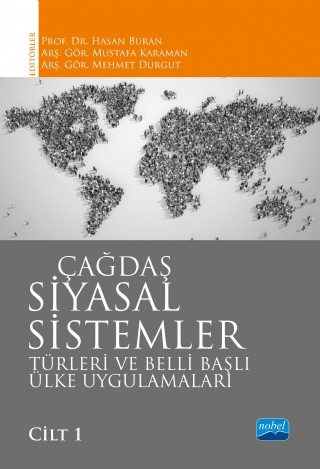
Since the formal framework of the political systems is determined by the constitution and laws of the relevant country, it is possible to have a certain idea about the general characteristics and functioning of the political regime. However, in addition to the constitution and some basic laws of a country, looking at the historical, geographical, social, cultural and economic characteristics of that country, its political parties, party system, election system, pressure and interest groups, is a more accurate and more consistent analysis of the functioning of the political system in that country. will further increase our ability to do so.
This work; It is composed of two volumes, to some extent interconnected, to some extent independent. In this first volume; the state, state theories, elements of the state, democracy, legislative, executive, judiciary, election, electoral systems, pressure and interest groups and party systems are discussed theoretically. Then, country practices that will be suitable for political regimes and their sub-derivatives are given. The Swiss practice is given as a partial example of the Parliamentary Government System, one of the systems based on the union of powers. Among the political systems based on the separation of powers, the country practices of England, Sweden and Saudi Arabia as an example of the Parliamentary System with a Constitutional Monarchy, and the country practices of Germany, Italy and the Republic of South Africa as an example of the Republican Parliamentary System are included.
In the second volume, 10 different presidential systems related to five sub-derivatives of semi-presidential systems, 4 different presidential systems related to sub-derivatives of presidential systems, and the Presidential Government System in Turkey will be covered.
Hope it will be helpful to the reader...
This work; It is composed of two volumes, to some extent interconnected, to some extent independent. In this first volume; the state, state theories, elements of the state, democracy, legislative, executive, judiciary, election, electoral systems, pressure and interest groups and party systems are discussed theoretically. Then, country practices that will be suitable for political regimes and their sub-derivatives are given. The Swiss practice is given as a partial example of the Parliamentary Government System, one of the systems based on the union of powers. Among the political systems based on the separation of powers, the country practices of England, Sweden and Saudi Arabia as an example of the Parliamentary System with a Constitutional Monarchy, and the country practices of Germany, Italy and the Republic of South Africa as an example of the Republican Parliamentary System are included.
In the second volume, 10 different presidential systems related to five sub-derivatives of semi-presidential systems, 4 different presidential systems related to sub-derivatives of presidential systems, and the Presidential Government System in Turkey will be covered.
Hope it will be helpful to the reader...
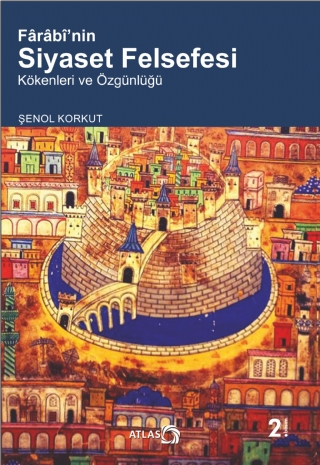
This book examines the political philosophy of the Second Muallim Fârâbî in terms of its origins and originality.
Fârâbî, who built the political science and philosophy in Islamic thought as a science, also pursued a series of alternative political theories to the political thought of the Athenian-oriented Greek philosophy. Al-Farabi, who built a unique political philosophy between the political elements brought by the revelation of Islam and the ancient Greek political philosophy, on the one hand brought new problem areas to political philosophy, on the other hand, he brought a new horizon to Islamic thought with the doctrine of virtuous and virtuous cities. It is possible to see the virtuous and immoral perspectives developed by the philosopher on the ground of philosophy, nation and medina, in all the problem groups he examines about political philosophy. In this book, on the one hand, virtuous philosophy, virtuous religion and the idealized philosophical adventure of the virtuous city are examined, on the other hand, the story of corrupt philosophy, corrupt religions and unvirtuous cities in the philosophical filter of the Second Teacher is discussed.
Fârâbî, who built the political science and philosophy in Islamic thought as a science, also pursued a series of alternative political theories to the political thought of the Athenian-oriented Greek philosophy. Al-Farabi, who built a unique political philosophy between the political elements brought by the revelation of Islam and the ancient Greek political philosophy, on the one hand brought new problem areas to political philosophy, on the other hand, he brought a new horizon to Islamic thought with the doctrine of virtuous and virtuous cities. It is possible to see the virtuous and immoral perspectives developed by the philosopher on the ground of philosophy, nation and medina, in all the problem groups he examines about political philosophy. In this book, on the one hand, virtuous philosophy, virtuous religion and the idealized philosophical adventure of the virtuous city are examined, on the other hand, the story of corrupt philosophy, corrupt religions and unvirtuous cities in the philosophical filter of the Second Teacher is discussed.

Dictionary of Philosophy Doctrines and Terms, mainly to prevent conceptual anarchy; in order to fill a large gap in the philosophy dictionary in the market, to arouse interest in philosophical issues, to warn especially young people against the bad and destructive effects and suggestions of negative currents, to show them the roots of these currents, to facilitate and give clues to those who are in the field of philosophy in the research they want to do. has been written. This dictionary; In addition to being a helpful book especially for philosophy teachers, students, and those who are closely or distantly interested in philosophy, it introduces readers from all fields to certain philosophical doctrines.

Introduction to Philosophy is written for those seeking an introduction to philosophy as a discipline and intellectual activity. The work aims to make this introduction by introducing philosophy itself, its basic concepts, trends and subjects, and ways of thinking and reasoning specific to philosophy. In the work, which consists of eight chapters, after a first chapter that aims to establish an acquaintance with philosophy, issues related to epistemology, philosophy of science, philosophy of being, ethics, political philosophy, philosophy of religion and philosophy of art are included.
Introduction to Philosophy appeals to all those who want to meet philosophy and want to include philosophy, which we can define as "thinking on big questions in an argumentative and questioning way", into their lives in some way. Written for future teacher candidates. The most important feature of the work is that it deals with the subjects of philosophy with a constructivist approach, that is, the book, Introduction to Philosophy, has been created by using diagrams and visual materials in a way that will enable the student to think about philosophical questions and problems and make the necessary inquiries, instead of conveying ready-made information about the subjects and problems of philosophy.
Introduction to Philosophy appeals to all those who want to meet philosophy and want to include philosophy, which we can define as "thinking on big questions in an argumentative and questioning way", into their lives in some way. Written for future teacher candidates. The most important feature of the work is that it deals with the subjects of philosophy with a constructivist approach, that is, the book, Introduction to Philosophy, has been created by using diagrams and visual materials in a way that will enable the student to think about philosophical questions and problems and make the necessary inquiries, instead of conveying ready-made information about the subjects and problems of philosophy.

Communication is something we cannot give up in order to understand, to explain, or to agree… A cycle that we cannot escape from, continuing and responding to what we understand, what we say, and our agreements… An escalator that goes and comes continuously from us to us, from us to you, from you to us, in short from person to person… A cornerstone of life. Contact…
It is a book that guides all individuals in the society these days when we complain about lack of communication and realize that communication is important... While it contributes to learning what communication skills are, it also sheds light on people's ability to see where they make mistakes... It answers the following questions that come to mind:
They don't understand me, I can't explain myself, what should I do?
I think I empathize, or am I not?
There is a constant conflict between us, how can I resolve it?
I'm unsuccessful in group work, why can't I express myself?
I can't convince… How can I do it?
Communication in the family is broken… Why?
My communication with my friends is very bad at my workplace, how can it be improved?
Am I a good listener?
It is a book that guides all individuals in the society these days when we complain about lack of communication and realize that communication is important... While it contributes to learning what communication skills are, it also sheds light on people's ability to see where they make mistakes... It answers the following questions that come to mind:
They don't understand me, I can't explain myself, what should I do?
I think I empathize, or am I not?
There is a constant conflict between us, how can I resolve it?
I'm unsuccessful in group work, why can't I express myself?
I can't convince… How can I do it?
Communication in the family is broken… Why?
My communication with my friends is very bad at my workplace, how can it be improved?
Am I a good listener?

There are many attempts to define the nature of man. The most common and almost agreed upon among these attempts is that man is a political creature. Man is a being who lives in a community, makes sense and establishes himself in a community. However, the transformation of this obligatory union of people into a good and fair system poses an important problem. Various political systems have been developed throughout history to establish and maintain such a social order. One of the most important and urgent problems facing humanity today is the formation of a good, beneficial and just order for everyone.
This work has been prepared in order to draw a theoretical framework for Islamic political thought by using the possibilities and tools of contemporary political science and political philosophy.
This book, which includes 11 articles written by competent academics in the field, aims to provide new expansions of classical origin to Islamic political thought, which has been shaped by Western influence in the modern period. For this reason, it aims to systematically address ancient issues in a conceptual continuity and thus to bring Islamic political thought to the present.
This work has been prepared in order to draw a theoretical framework for Islamic political thought by using the possibilities and tools of contemporary political science and political philosophy.
This book, which includes 11 articles written by competent academics in the field, aims to provide new expansions of classical origin to Islamic political thought, which has been shaped by Western influence in the modern period. For this reason, it aims to systematically address ancient issues in a conceptual continuity and thus to bring Islamic political thought to the present.
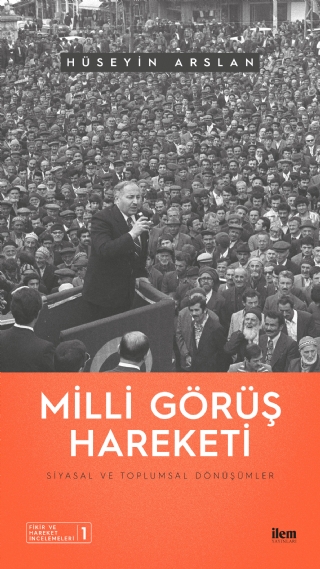
The book Milli Gorus Movement: Political and Social Transformations is an analysis of a movement that left its mark on the political history of Turkey and became the catalyst for social transformation. The Milli Gorus movement, which started with the entry of Necmettin Erbakan into politics in 1969, marks a turning point for Turkish political life and Islamist thought.
The history of Turkey cannot be analyzed clearly without considering the National Vision movement, which is the core of many social structures, institutions and political parties that still affect Turkish politics today.
With the "Idea and Movement Studies" series, it is aimed to present a framework and an original view on the main names, journals and issues that reflect the intellectual accumulation of Islamism and appear in almost every field. The books to be included in the series cover topics that are curious in different fields of Islamist thought. In this framework, it is aimed to contribute to the understanding of the issues on a basic and introductory level.
The history of Turkey cannot be analyzed clearly without considering the National Vision movement, which is the core of many social structures, institutions and political parties that still affect Turkish politics today.
With the "Idea and Movement Studies" series, it is aimed to present a framework and an original view on the main names, journals and issues that reflect the intellectual accumulation of Islamism and appear in almost every field. The books to be included in the series cover topics that are curious in different fields of Islamist thought. In this framework, it is aimed to contribute to the understanding of the issues on a basic and introductory level.
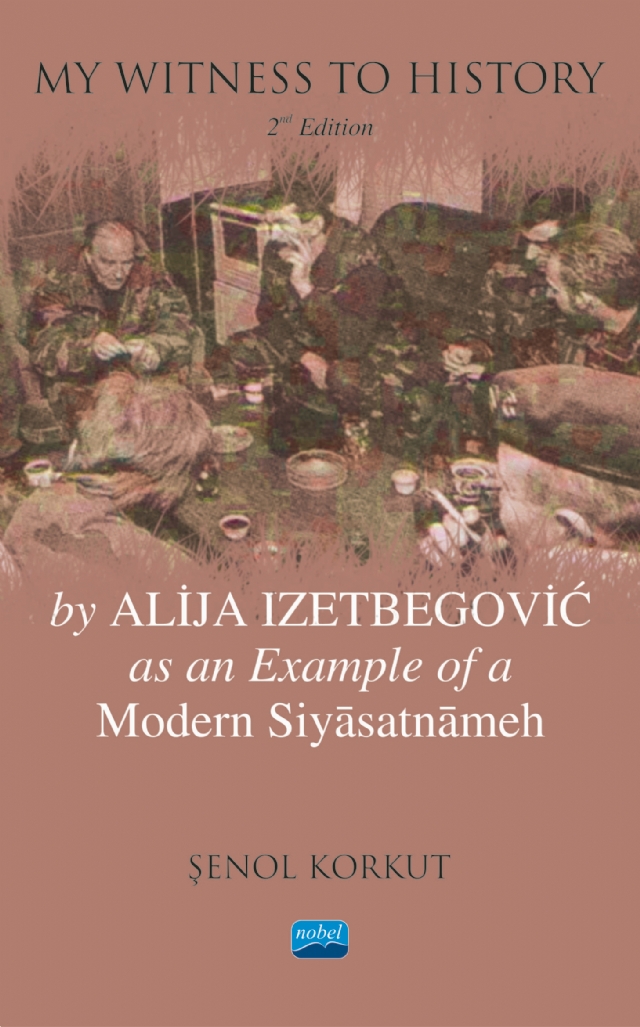
This book, subjects the basic dynamics of the Muslims of Bosnia and Herzegovina to a new reading through the memories of Alija Izetbegović (1925-2003), one of the most important Muslim intellectuals of the twentieth century. Izetbegović's pursuit of truth in his childhood and youth and his attitude towards the ideologies around him are taken in terms of the way a Muslim intellectual was brought up in the modern world. In the second part of the study, the importance of the Islamic Declaration for the current Islamic world, how to keep the Muslim identity alive under all conditions and the Islamic method to be developed for the policies of dimming the Muslim identity are examined. In the third part of the study, the importance of a Muslim party on the basis of the SDA and the principles to be derived from the struggle for existence during the Bosnia-Herzegovina war were examined. In the last part of the study, the current situation in Bosnia and Herzegovina after Dayton is discussed. The book seeks to construct a modern Siyāsatnāmeh based on the memories of Izetbegović.
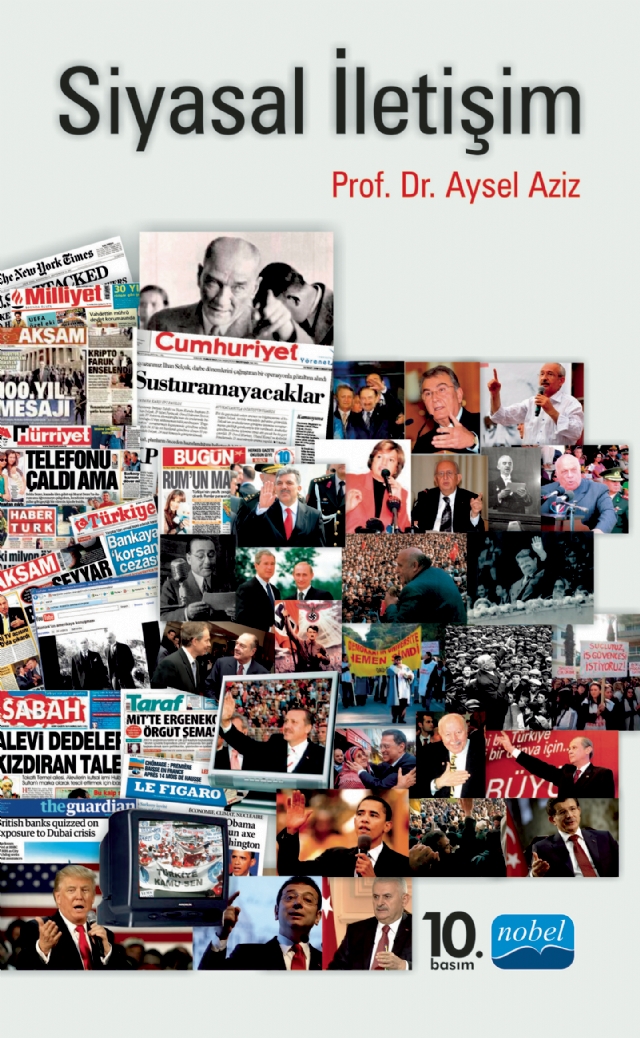
Political Communication has been constantly revised, expanded and updated since its first publication in 2003. In this edition of the book, the changes and updates made in the 8th edition, both in form and content, have been preserved.
In the book, the phenomenon and process of communication are explained on the basis of the phenomenon of communication, but taking into account the characteristics of political discourse. With its broad definition, all political communication actors, features, genres, methods and techniques in political discourse, and the relationship between media and political communication, which has a unique place in political communication; constitutes the facts on which the book particularly focuses.
The book gives a special place to the communication of political parties, one of the actors of political communication, and focuses mainly on the political campaigns of political parties, both in wide and narrow time periods, and especially on election campaigns; It explains the political campaigns of the very recent history by giving examples from Turkish political life.
In the last part of the book, a general evaluation is made by referring to the researches made in the world and in Turkey regarding political communication.
In the book, the phenomenon and process of communication are explained on the basis of the phenomenon of communication, but taking into account the characteristics of political discourse. With its broad definition, all political communication actors, features, genres, methods and techniques in political discourse, and the relationship between media and political communication, which has a unique place in political communication; constitutes the facts on which the book particularly focuses.
The book gives a special place to the communication of political parties, one of the actors of political communication, and focuses mainly on the political campaigns of political parties, both in wide and narrow time periods, and especially on election campaigns; It explains the political campaigns of the very recent history by giving examples from Turkish political life.
In the last part of the book, a general evaluation is made by referring to the researches made in the world and in Turkey regarding political communication.
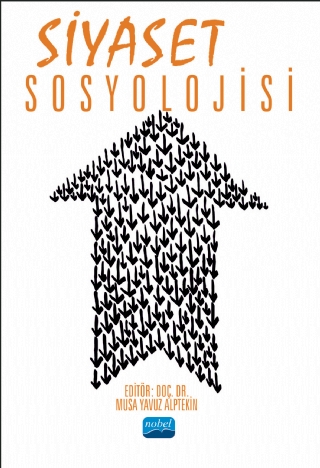
In addition to the content of a textbook that academics who teach Political Sociology can recommend to their students, this book is also a comprehensive book that can answer the questions of researchers, academics and curious readers from various fields of social sciences. I hope that this wealth of topics in its content will be useful to all its readers...
• Politics and Society
• Dependency and Autonomy of Politics: Orthodox/Neo/Post-Marxism
• Political Power, Authority, Hegemony and Legitimacy from Site-Societies to Modern Nations
• Social Contract Theories and Its Importance for Political Sociology
• Nation, Nationalism, Nation-State and Nation Building
• Political Regimes and Social Context
• Elite in Politics and Community Life
• Ideology, Political Ideologies and Society
• Religion and Politics
• Civil Society, Politics and the State
• The Nature of Social Movements Past, Present and Future
• Political Culture
• Political Socialization and Political Participation
• Public Opinion, Propaganda and Political Communication
• Politics and Society
• Dependency and Autonomy of Politics: Orthodox/Neo/Post-Marxism
• Political Power, Authority, Hegemony and Legitimacy from Site-Societies to Modern Nations
• Social Contract Theories and Its Importance for Political Sociology
• Nation, Nationalism, Nation-State and Nation Building
• Political Regimes and Social Context
• Elite in Politics and Community Life
• Ideology, Political Ideologies and Society
• Religion and Politics
• Civil Society, Politics and the State
• The Nature of Social Movements Past, Present and Future
• Political Culture
• Political Socialization and Political Participation
• Public Opinion, Propaganda and Political Communication
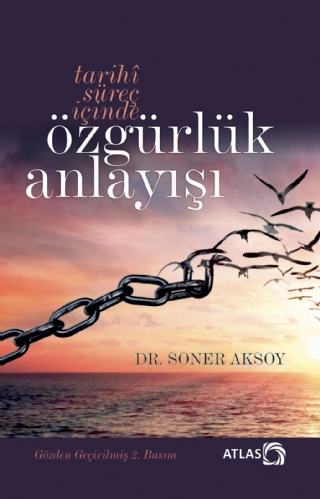
Objecting is an important act of courage that not everyone uses. This action has an important place in the life of thinking people. Those who use their minds may prefer to criticize while thinking and to judge when necessary. While some object to it from within, others express it. That's what I like to express without hesitation. Actually, I don't want to make it seem like a person to accept everything that is said, read or even see, and swallow it like a pill without question.
My purpose is not to mean a blind person who opposes everything that comes his way without thinking, back and forth, constantly objecting. I think that transferring the protest action with a reasonable and balanced approach can yield good results. This is a trait we expect from our intellectuals in particular. It should be done in order to tell the truth, to tell what is right without hesitation, to reveal any mistakes or mistakes, and to illuminate a view from a different perspective in order to seek the truth and the better.
Unfortunately, there is such a disease in our country. A secret virus implanted in minds when they were younger. It is almost a secret way of stopping development, growth, change, shooting ourselves in the foot, destroying the creative qualities of our children, killing the excitement and reducing productivity! There is a strong need for an education and training system that kills this hidden virus of society. What we need is serious and responsible for events; They are brave and virtuous young people who do not approach cynically, question, judge, try to learn why and why, and know how to object.
My purpose is not to mean a blind person who opposes everything that comes his way without thinking, back and forth, constantly objecting. I think that transferring the protest action with a reasonable and balanced approach can yield good results. This is a trait we expect from our intellectuals in particular. It should be done in order to tell the truth, to tell what is right without hesitation, to reveal any mistakes or mistakes, and to illuminate a view from a different perspective in order to seek the truth and the better.
Unfortunately, there is such a disease in our country. A secret virus implanted in minds when they were younger. It is almost a secret way of stopping development, growth, change, shooting ourselves in the foot, destroying the creative qualities of our children, killing the excitement and reducing productivity! There is a strong need for an education and training system that kills this hidden virus of society. What we need is serious and responsible for events; They are brave and virtuous young people who do not approach cynically, question, judge, try to learn why and why, and know how to object.
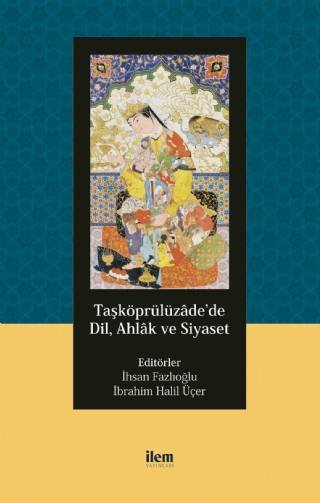
Taşköprülüzâde, one of the most prolific names of the Islamic tradition of thought in the 16th century, on the one hand gives a true representation of his era, which is called the Late Renewal Period and which stands out with its methodological integration efforts, on the other hand, stands out as a complete heir to the scientific knowledge produced in previous periods. In this respect, he reconsidered the main problems that developed within the traditions of theology, philosophy and mysticism, which he inherited, in accordance with the gradual understanding of knowledge and reality of his age, and brought a holistic view to different fields of theoretical and practical thought with the works he wrote.
This book, on the one hand, reveals Taşköprülüzâde's contributions to the field of practical philosophy through the basic concepts of political and moral thought, on the other hand, it shows the ways in which the thinker deals with the tradition of Islamic linguistics and its main problems by focusing on the linguistics tradition. In addition, in the book, the reader will have the opportunity to observe the practical politics of Taşköprülüzâde, who is also a judge, by seeing how Taşköprülüzâde has contributed to the polemic literature that can be considered current in terms of the thinker's refusal against the Jews.
This book, on the one hand, reveals Taşköprülüzâde's contributions to the field of practical philosophy through the basic concepts of political and moral thought, on the other hand, it shows the ways in which the thinker deals with the tradition of Islamic linguistics and its main problems by focusing on the linguistics tradition. In addition, in the book, the reader will have the opportunity to observe the practical politics of Taşköprülüzâde, who is also a judge, by seeing how Taşköprülüzâde has contributed to the polemic literature that can be considered current in terms of the thinker's refusal against the Jews.

This book deals with social influence, attitude change and persuasion, which are among the most popular topics in social psychology, political science, marketing and communication sciences.
"Social influence and persuasion", which is an extremely important issue in terms of both public relations, advertising and mass communication studies, is also of great importance in terms of efforts to cope with social problems such as smoking and substance abuse, inequalities in education, and non-compliance with traffic rules.
Persuasion has a special place in daily life as well. We are constantly trying to persuade family members, friends, the opposite sex, and our employers.
This subject, which has both individual, social and global importance, is covered in this book by defining basic concepts in detail, examining traditional and contemporary theoretical approaches, and giving practical clues in line with current research findings.
"Social influence and persuasion", which is an extremely important issue in terms of both public relations, advertising and mass communication studies, is also of great importance in terms of efforts to cope with social problems such as smoking and substance abuse, inequalities in education, and non-compliance with traffic rules.
Persuasion has a special place in daily life as well. We are constantly trying to persuade family members, friends, the opposite sex, and our employers.
This subject, which has both individual, social and global importance, is covered in this book by defining basic concepts in detail, examining traditional and contemporary theoretical approaches, and giving practical clues in line with current research findings.